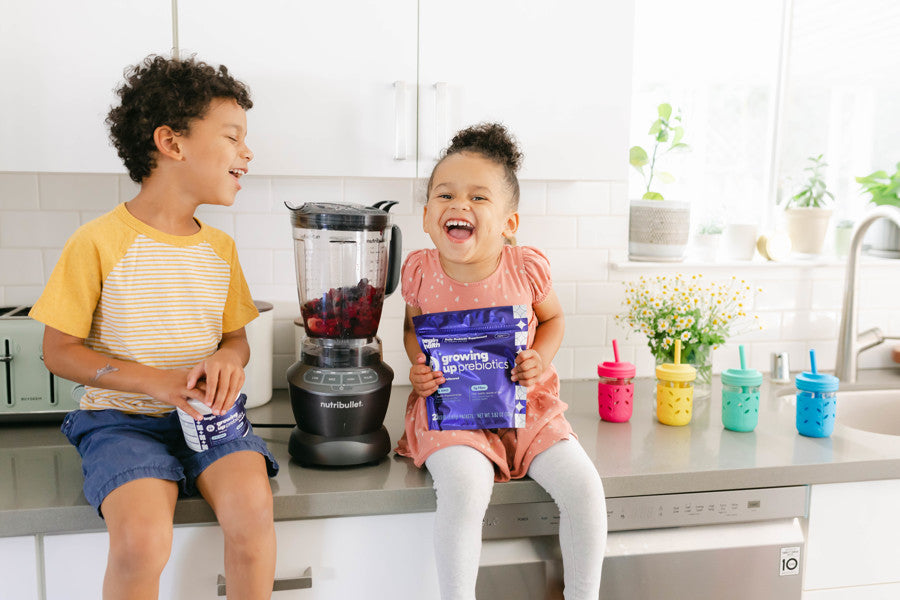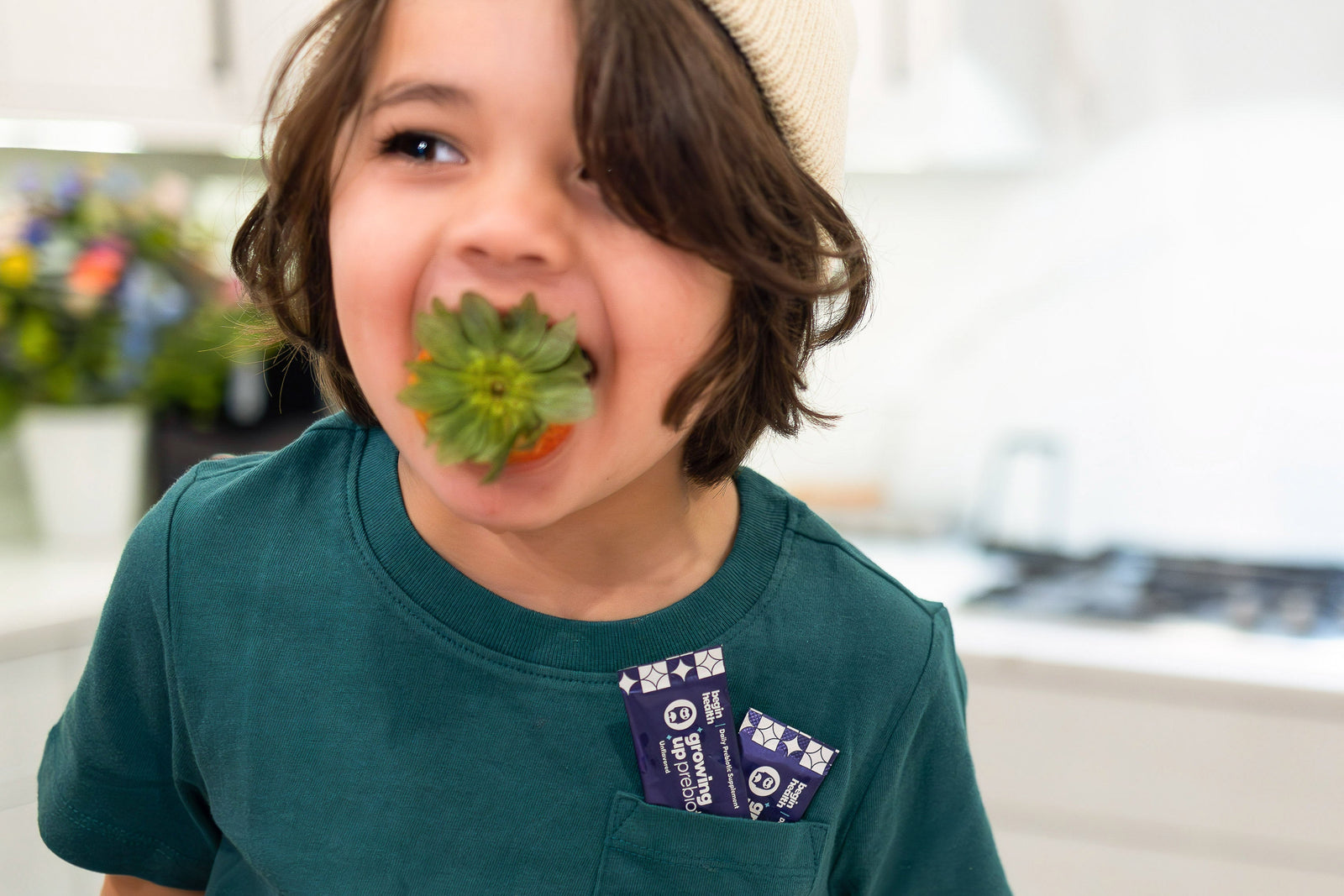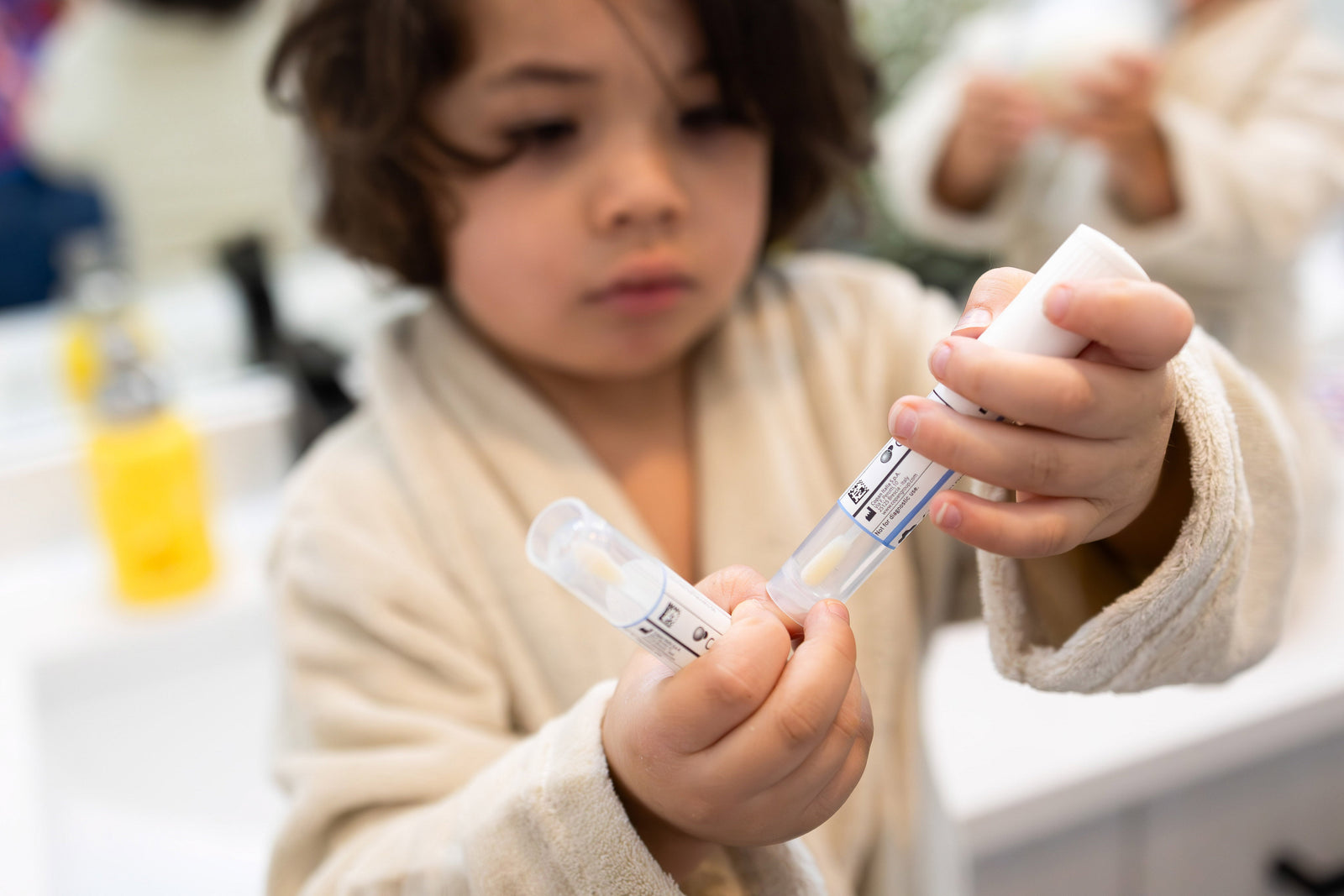Your Cart is Empty
Continue shoppingCan Kids Take Prebiotics and Probiotics Together?
Medically Reviewed by May Zhu, RDN | Published December 03, 2023
share this article

Building and maintaining good gut health is critical for a kid’s overall health. We’ve talked about Prebiotics vs Probiotics before and how both can support gut health, but one common question we still get from parents is whether kids can take prebiotics and probiotics together. Let's review the science behind this question to explore the role of prebiotics and probiotics and whether you should combine them to help optimize your little one’s gut health.
Safety Concerns of Prebiotics and Probiotics for Kids
Probiotics are considered safe for kids to consume, with some exceptions. For specific populations such as kids with a compromised immune system or chronic illnesses such as cancer, it’s best to avoid consuming probiotics. As always, we suggest consuming probiotics through food sources first, unless otherwise suggested by your kid’s pediatrician or healthcare provider. Check out what our Registered Dietitian recommends as the top sources of probiotic foods for kids.
Prebiotics are also generally safe for kids ages 1 and up to consume. An exception may include kids with Irritable Bowel Syndrome, since high fiber foods may increase symptoms associated with the condition. For a generally healthy kiddo, prebiotics can help build and maintain digestive balance for gut health support. Prebiotic fiber is found in foods such as berries, artichokes, and apples.
Daily reads to help your little ones lead happier and healthier lives.
Buy Now
Join the
Happy Gut Club
Begin Health Expert Tip
For pickier kiddos, Begin Health’s Growing Up Prebiotics can help fill the prebiotic fiber gap by providing 3g of fiber per serving. Just mix it into your little one’s water or favorite beverage - it’s tasteless, textureless, and an easy way to support your little one’s daily digestive health.
It’s important to note both prebiotics and probiotics could potentially cause a slight increase in bloating and gas within the first few days of use as the microbiome adjusts to both. Always start with the lowest suggested dosage and increase the amount over time as needed. Any potential symptoms should resolve within a few days as the body gets used to the introduction of both probiotics and prebiotics. Currently, there’s no evidence that suggests combining prebiotics and probiotics will contribute to negative health outcomes.
Benefits of Combining Prebiotics and Probiotics for Kids
1. Synbiotic Support for Gut Health. Research suggests that combining prebiotics and probiotics can create a synergistic effect in promoting a balanced and flourishing gut microbiota. Prebiotics act as the fuel for probiotics, enhancing their survival and activity in the digestive system. This symbiotic relationship fosters an environment conducive to the growth of beneficial bacteria, supporting digestion and overall gut health [1].
2. Immune System Support. The combination of prebiotics and probiotics has been associated with enhanced immune system function, a crucial aspect of your little one’s overall health. Studies indicate that a well-balanced gut microbiota, supported by both prebiotics and probiotics, can positively influence the immune response, reducing the risk of infections and promoting immune resilience [2].
3. Digestive Comfort for Little Ones. Research suggests that both prebiotics and probiotics may help alleviate common digestive issues such as constipation and diarrhea, creating a balanced environment in the gastrointestinal tract [1].
4. Supporting Nutrient Absorption. The combination of prebiotics and probiotics has been linked to improved nutrient absorption, a critical factor in the growth and development of kids. A healthy gut environment supports the absorption of essential nutrients, ensuring that your little one receives maximum benefit from their diet [3].
Begin Health Expert Tip
Have you wondered when is the best time for kids to take prebiotics? Find out what our nutrition experts at Begin say about timing and prebiotic intake.
Tailoring the Approach to Your Kid’s Needs
It's important to note that the optimal balance of prebiotics and probiotics may vary for each kid. Factors such as age, overall health, and specific health conditions should be considered. Consulting with a healthcare professional, such as a Pediatrician or a Registered Dietitian, can provide personalized guidance tailored to your little one’s unique needs.
Summary
Yes, incorporating both prebiotics and probiotics into your kid’s routine can offer additional support for nurturing their gut health. From digestion to immune support, the combination of prebiotics and probiotics together creates a symbiotic effect that can help build a better environment in tiny tummies. As always, consult with your personal healthcare provider to determine the most suitable approach for your kid’s individual health journey and before starting any new supplement routines.

Author
May Zhu, RDN
Trending

Why Parents Are Choosing Prebiotics Over Stool Softeners for Kids
read now
Inc. Names Begin Health to Its 2025 List of the Fastest-Growing Private Companies in the Midwest
read now
Oxalates and Kids' Digestion: How High-Oxalate Foods Contribute to Constipation and Gut Discomfort
read now






